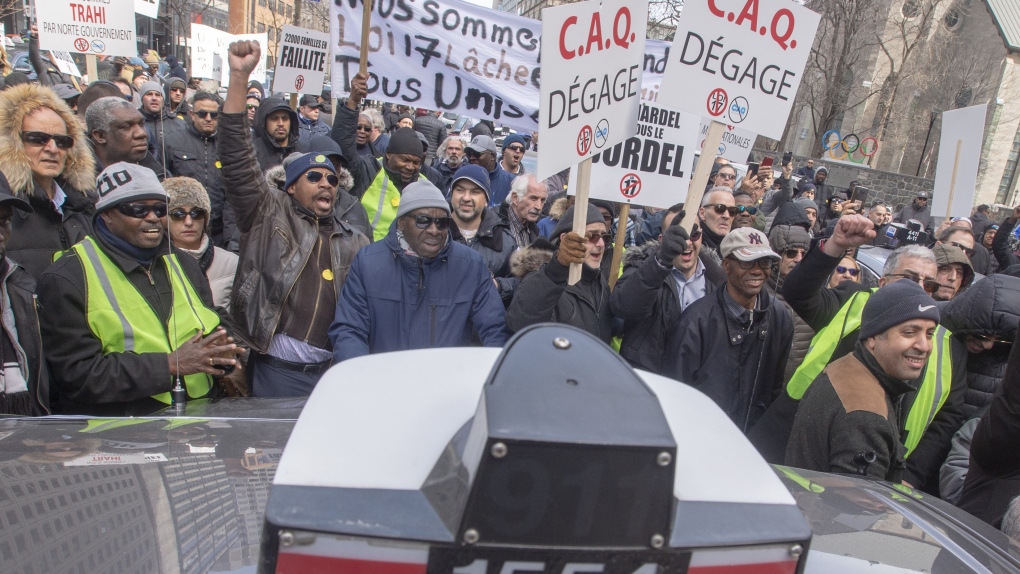
A trial opens Tuesday in a class action lawsuit in which cab drivers are accusing the Quebec government of causing their permits to lose value by allowing ride-sharing company Uber to operate, and then abolishing the permit system.
According to the participants in the class action, the government’s “negligence” led to the expropriation of taxi permit owners in areas where Uber offered its services without fair and reasonable compensation.
When Uber launched operations in Quebec in 2013, the government allowed it to operate even though it did not comply with existing regulations.
This led to a decrease in demand for cab permits and, consequently, a drop in their value, the plaintiffs argue.
They also allege that the government’s actions, including introducing a pilot project in 2016 to legalize Uber’s operations in Quebec, accelerated the decrease in the value of their permits.
The licences were finally eliminated as part of a reform of the cab industry in 2019.
In the plaintiffs’ view, by implementing its pilot project to legalize Uber’s operations, the government was negligent, acted in bad faith and deliberately caused cab driver permits to lose value.
Previously, the government strictly controlled the number of taxi licences in each city across the province.
In 2015, for example, Montreal was allowed 4,522 licences, and the price of permits skyrocketed, reaching around $200,000.
When Uber entered the market, the value of the permits began to fall, as new drivers didn’t want to fork out the money when the industry was undergoing a rapid transformation.
In 2019, the government passed a law abolishing the permit system and relaxing other regulations.
Though the government compensated permit holders, their lawyers claim that many received around $150,000 less than their market value before Uber arrived in the province.
“In many cases, these permits represented the owners’ most important financial asset, in addition to being their retirement plan and the legacy they planned to leave to their children,” explained law firm Trudel Johnston & Lespérance, which is representing the cab drivers.
The class action, authorized in 2018, seeks compensation equivalent to the market value of a taxi owner’s permit prior to Uber’s arrival in Quebec in 2013 and $1,000 in punitive damages for each class member.
Justice Minister Simon Jolin-Barrette’s office declined to comment on the case on Monday, as it is before the courts.
However, the government has already argued that it cannot be sued for political decisions and says the allegations contained in the class action are not specific.
— This report by The Canadian Press was first published in French on April 2, 2024.